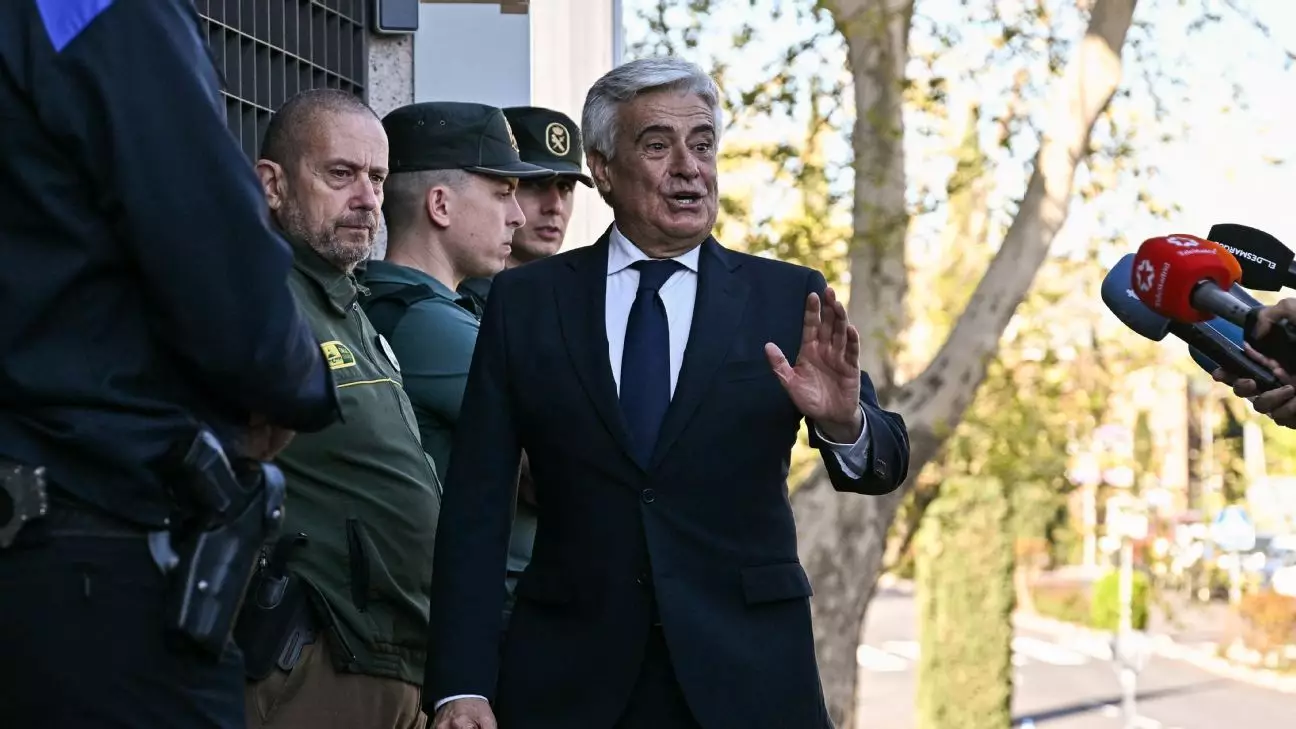The Royal Spanish Football Federation (RFEF) stands at a crossroads as it prepares for crucial presidential elections in December 2024. This follows a tumultuous period marked by controversy and leadership struggles, notably the suspension of Pedro Rocha in July, who faced a two-year ban due to significant infractions. The absence of effective governance has thrown Spanish football into disarray, prompting intervention from FIFA and the Spanish government, both of which have expressed urgency in restoring order to the federation.
At the heart of this chaotic scenario is the fallout from the resignation of former RFEF president Luis Rubiales, who stepped down in September after enduring backlash for an inappropriate incident involving Spanish player Jenni Hermoso. The subsequent creation of a special committee by the Spanish government aimed at overseeing the RFEF underscores the severity of the situation and the need for immediate reform. This intervention is not merely a response to internal governance issues but highlights the broader implications for football in Spain.
Pedro Rocha’s interim leadership has failed to stabilize the federation amid mounting pressures. His brief tenure was overshadowed by the urgent need to elect a permanent president, a situation that has sparked concerns about Spain’s bid to host the 2030 World Cup. Coach Luis de la Fuente’s apprehensions reflect a growing fear that the indecision within the RFEF could jeopardize Spain’s global standing in football. FIFA has made it clear that any government meddling in football affairs is unacceptable, thereby complicating the dynamics between the governing body and the RFEF.
As the RFEF pushes forward with the electoral process, it faces not only the challenge of selecting competent leadership but also the dire need to reassure stakeholders, including players, clubs, and fans, about its commitment to governance reform. A successful election is paramount, not just for internal stabilization but also for restoring confidence in Spain’s football management on the international stage.
The timeline for the upcoming elections, set for December 16, is pivotal; however, it raises questions regarding the integrity and transparency of the process. The scrutiny from FIFA, coupled with the expectations of the Spanish government, adds layers of complexity to the electoral landscape. The RFEF must ensure that its electoral procedures are fair and inclusive, providing a platform for new ideas and perspectives that could revitalize Spanish football governance.
The implications of this electoral process extend beyond individual leadership; they encompass the future of competitive events like the Spanish Super Cup, which is set to take place in Jeddah, Saudi Arabia, in January 2025. This decision has already stirred debates about the federation’s priorities and its relationship with domestic vs. international entities. The upcoming semifinal matches featuring esteemed teams like Real Madrid, Barcelona, and Athletic Club reflect the competitive spirit of Spanish football, yet they exist within a context of uncertainty regarding the federation’s leadership.
As Spain braces for its new electoral chapter, it is clear that the stakes are higher than just the position of president; they hinge on the future health of Spanish football as a whole. The need for reform and transparent leadership has never been more urgent. The upcoming elections represent a crucial opportunity for the RFEF to not only appoint a new president but to also redefine its commitment to excellence and integrity in the world of football. The collective hope is that, through this election process, a renewed vision for Spanish football can emerge—one that prioritizes the sport’s values and elevates it back to its rightful place in the global arena.

Leave a Reply